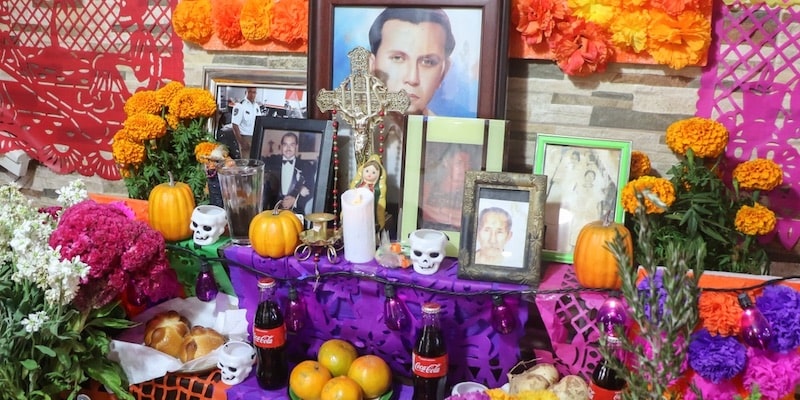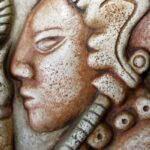We explain what an offering is, its function in ancient religions and Christianity. Also, the Day of the Dead offerings.

What is an offering?
An offering or votive offering It is a gift, sacrifice or donation made to the gods or any type of deity to gain their favors or help, or to fulfill some type of promise, vow or obligation. The word comes from offerenda Latin term composed of the prefix ob- (“against” or “in exchange for”) and the verb ferre (“bring”) in its gerundive mode (ferendus). This means that, in principle, an offering is something that is given in exchange for something else, that is, something that is offers.
In ancient religions, offerings and sacrifices were very common, especially in the worship of severe gods and vengeful, who demanded, according to belief, continuous displays of devotion on the part of the parishioners so as not to impose punishments or hardships on them. For example, ancient Hebrew priests offered the body fat and viscera of certain animals to God, burning them on an altar, while the ancient Aztecs or Mexica sacrificed captured warriors from conquered tribes to quench the bloodlust of the Sun god.
While offerings are primarily intended for gods or deities, nowadays they are also given to the Church and priests at specific times, such as funerals, masses, and other special occasions. Not only because they are considered intermediaries between God and humanity, but because in this way the membership helps the maintenance of the Church.
Offerings in Christianity
In the Christian religion, offerings are normally made in the form of clothing, food or money and are given to the Church, to contribute to its maintenance and its charitable work of assistance to the poor and helpless. This religion takes its concept of offering from the Bible, both the Old and New Testaments.
In the Old Testament, Moses instructed the people of Israel on how to entertain God by giving away part of their wealth as a way of gratitude for the promised lands: barley, wheat, oil, sacrificial animals, as long as it was equivalent to ten percent of their total assets.
In the New Testament, the offerings that Christian people must make to their shepherds are compared to a seed: a gesture whose beneficial effects will be seen later. Furthermore, among the teachings of Jesus Christ are love and generosity towards others.
Day of the Dead Offerings

The Day of the Dead is a rite inherited from both the traditional Mesoamerican religion of the Mexica and the Christian vision imposed during the conquest. By celebrating it, Homemade altars are built in which tribute is paid to deceased ancestors and relatives, through offerings votives of different types. The belief establishes that on the night of the dead the deceased can return to the world of the living and share once again with their relatives and descendants, and this is why they are entertained with different objects and foods:
- Seasonal fruits (such as pumpkins, guavas, tangerines, oranges, bananas), chocolate, water and typical gastronomic preparations (such as bread of the dead and sweet skulls).
- Incense and other aromatic substances, such as resins and scent infusions.
- Flowers, colored paper and other decorative festive objects, such as petal crosses and religious images.
- Gold coins (symbols of wealth), clothing and family photographs.
The offerings, however, are not all placed on the same day, but this depends on certain local traditions: in some places they are placed in the morning, in others at night.
Generally, the history of the deceased who receives them is taken into account: for those who died in accidents, the day of the offering is October 28; for deceased children, October 31; and for adults who died naturally, it is November 1. Besides, It is very common that, once the offerings are installed on the altar, the doors of the house remain open as an invitation to the deceased to enjoy the offer that the family makes to them.
References
- “Offering (Christianity)” on Wikipedia.
- “Votive offering” on Wikipedia.
- “Altar of the dead” in Wikipedia.
- “Ofrenda” in the Language Dictionary of the Royal Spanish Academy.
- “Etymology of Offering” in the Online Spanish Etymological Dictionary.
- “Altar of the Dead: the origin of the tradition, when it was placed and the meaning of its elements” in El País.





